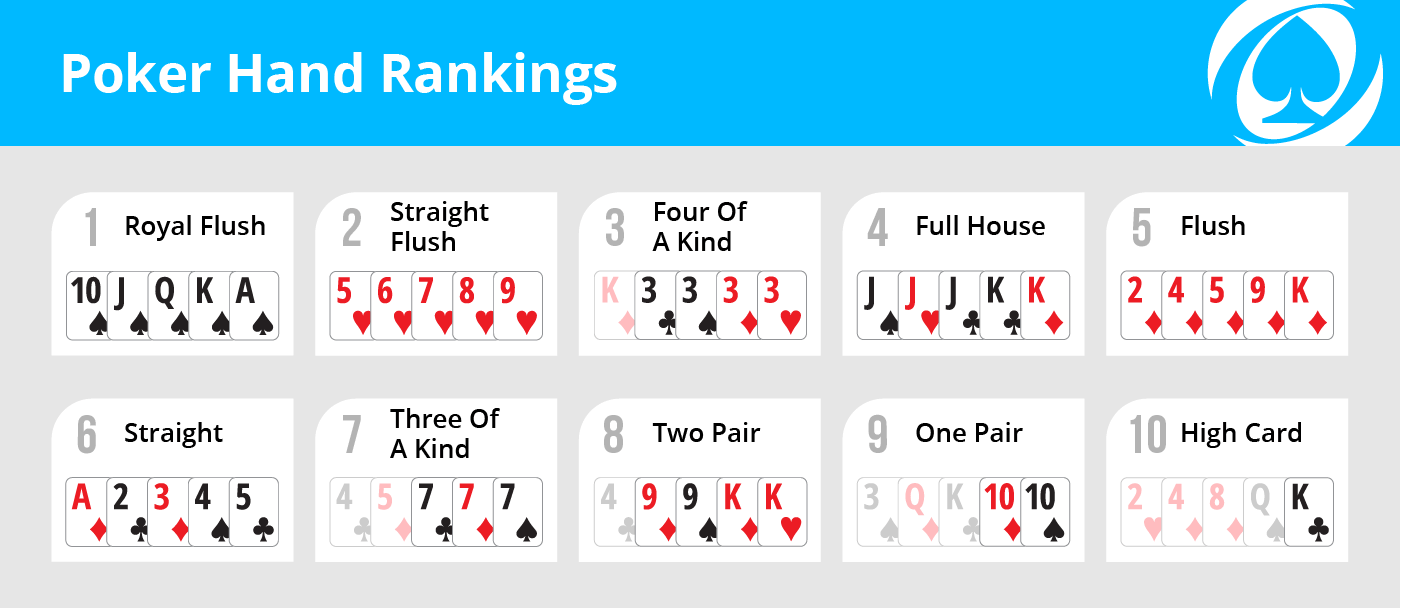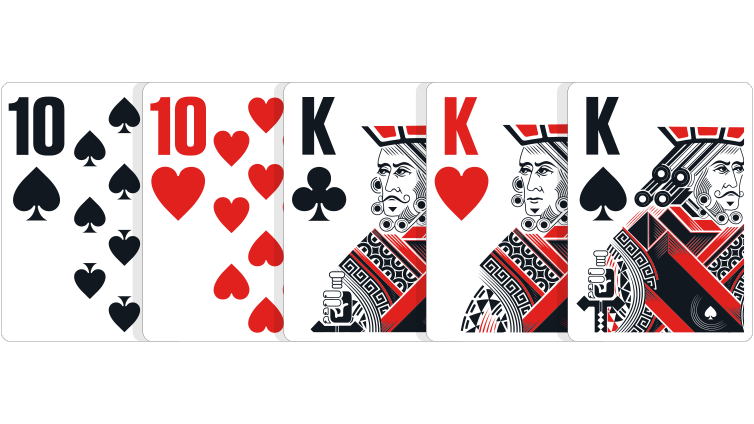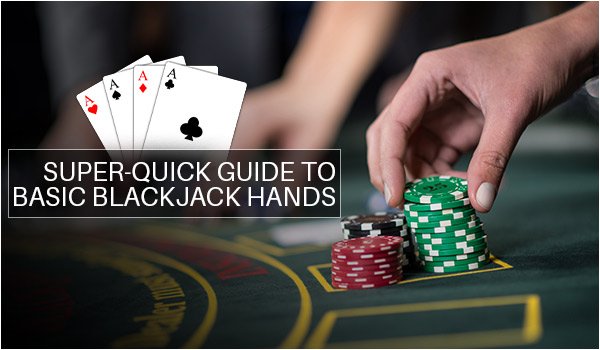Omaha Hi, or Pot Limit Omaha (PLO), is a game of big hands and even bigger draws. The pot limit betting structure means that crushing pre-flop all-ins are impossible – but that doesn't make it any less exciting. In fact, this is one genre that teaches newbies all about forming the different types of poker hands.
Each player is dealt 4 starting cards, making it easier to make (and chase) more draws. And, it's quite common to see three flushes shown down on the river – all in the same suit!
There is a lot more to Texas Hold'em poker than the basic rules an d getting great cards. So at this early stage, you'll get a better investment out of your playing time if you bet low, take some losses and concentrate on learning the poker strategies of your opponents rather than on winning each hand. Bluff at your own risk. Use some common. What hands are rank highest in Poker. ABOUT CARDPLAYER, THE POKER AUTHORITY CardPlayer.com is the world's oldest and most well respected poker magazine and online poker guide.Since 1988. Java -jar Pokerhandsimulator.jar To open the command prompt in Windows, go to the Start menu run the program Command prompt. Go to the directory where you downloaded the program using the command cd, and then run the command above.
earn how to play Omaha Hi with this interactive poker guide:
If you haven't tried this poker genre, 888poker has an easy 8-Step poker rules guide to show you how to play Omaha.
Table Positions in PLO
Table positions in Omaha Poker are exactly the same as in Texas Hold'em. However, the betting structure for the majority of Omaha Hi games are in a pot limit format. There are two forced bets, the Small and Big Blinds. The player Under-the-Gun is first to act pre-flop – and just as in Hold'em, position will play a big role in what sort of hands you should play.
Newbie Tip:Having 4 hole cards instead of 2 doesn't mean you should play twice as many hands as in Hold'em. Just the opposite! You need to be even pickier about the hands you choose to play.
Poker Hand Rankings
Omaha Hi hand ranking is the same as in Hold'em, with a Royal Flush being the best possible hand. Players must use 2 of their 4 starting cards in combination with any 3 community cards to make a hand. Now for some good news: Having 4 hole cards to choose from means that the average winning hand won't be Two Pair. Straights, Flushes and Full Houses are very common in this poker genre.
Newbie Tip: Holding 3 flush cards in your starting 4? You can only use 2 to make a flush, so you've already lost one out!
Pre-Flop Action
Pre-flop, the player directly to the left of the big blind gets everything into gear. They can fold (not play the hand), call (match a prior bet or raise) or raise (increase size of current bet up to pot). In PLO, the bet amount is set at the lower of the two table limit stakes. The action continues clockwise around the table until each player has had a chance to act. If there is no prior raise, the Big Blind can also check.
Newbie Tip:Betting stakes in PLO are expressed as $1/$2, with $1 being the lower and $2 being the higher stake.
Post-Flop Action
After the pre-flop betting round ends, the first of 3 community cards – the Flop – are dealt out. These cards can be used by all active players to form the best 5-card hand. Betting is still fixed at the lower limit stake. The first active player, seated left of the dealer, kicks off the 2nd betting round. Action continues clockwise around, with every player getting the opportunity to act.

Newbie Tip: As is the case in many other poker genres, a big % of your hand is made on the flop, therefore, choose wisely which ones to continue playing.
Post-Turn Action
After the flop, a third deal takes place – the 4th community card, also known as the Turn. Like the flop, this card is also is open to use to all active players. During the 3rd betting round, the betting limit is set at the higher stake. Once again, the remaining players have the option to check, bet, call (if there's a bet), raise (if there's a bet) or fold.
Newbie Tip: Make sure that you draw to the best possible straights or flushes. It is quite common to see lower straights and flushes get crushed on the River by better ones.
Post-River Action
The River is the fifth and final community card that is available for all players to use to form their best 5 card hand. Once again, the post -River session is played the same way as the Turn and Flop before it. The remaining players in the hand will be able to act in much the same fashion as before: checking, betting, calling (if there's a bet), raising (if there's a bet) or folding.
Newbie Trivia: Omaha High probably originated in the Chicago or Detroit areas in the late 1960's – not Omaha, Nebraska - before making its way to Las Vegas in the early 80's.
Showdown Shenanigans
The Showdown is the next step following the 4th betting round, as long as more than one player remains in the hand. During the showdown stage, each of the remaining players must use 2 of their 4 hole cards + 3 of the 5 community cards to form the highest ranking 5-card hand. The rest is easy: The player with the best poker hand wins. Now scoop in your pot!
Newbie Tip: Keep in mind that holding just one card in any suit won't give you a flush. You must use 2 from your starting hand + 3 from the board.
Read our ultimate guide for poker showdown.

Ready for Another Hand?
The dealer is ready to deal you into a new hand, but are you? It’s time to put all you've learnt so far to the test and gear up for the next round of Omaha Hi poker. Get ready to bet, call, raise and make that almighty Omaha Hi draw.
Challenge yourself to learn a new poker game and then challenge the Omaha tables at 888poker!
Pot Limit Omaha (PLO) is a game where the pots can get even bigger than No Limit Hold'em. It's not unusual to see 3, 4 or even 5 players all-in on the flop – all reaching for that addicting draw. It can be a heady game, with swings big enough - and more over the top - to make Cirque du Soleil's high-flying performers look like amateurs! PLO has come a long way since its early Vegas days and is ready to take over Hold'em's number one spot. Here are a few reasons why:
- You get 4 cards to play with, instead of 2, as in Hold'em.
- Even though you have 4 hole cards, you can only use 2 to make a hand.
- You can't “play the board”. All flush cards on the board and none in your hand? You don't have a flush.
- You can have more outs for straights in Omaha – called “wrap outs”. Sometimes as much as 20!
- Think you get “rivered” a lot in Hold'em? In PLO, it's common to see as many as 3 flushes at showdown – all in the same suit.
For the official Omaha Hi rules to the game, including all terms and conditions, please click here.
Quick Poker Rules
Welcome to our first poker lesson. This is the introduction to a wealth of knowledge about the most exciting card game ever devised – poker. Either you already know it or will learn it as you go through these lessons offered up by Pokerology.com. The “it” I refer to is that poker is an incredibly enjoyable, challenging and addictive game. Once the poker bug has bitten you there is seldom a cure. If that is true, and based upon the number of years I have played and enjoyed the game, I believe it to be, then it is worth your time and effort to play the game well.
You will soon learn that there are many different variations of poker, but the one thing they have in common is that you have to use your best five cards to make your hand. All forms of poker use a fifty two card deck made up of ranks starting with a two, commonly called a deuce, and continuing by number through ten and then in order comes the Jack, Queen, King and Ace. There are four different suits; Spades; , Hearts; , Diamonds; and Clubs; , all of which are of equal value in poker. So, four different suits of thirteen different ranks make the fifty two cards in a complete deck.
The Object of Poker
The object of poker is very simple – to win the money in the centre of the table, called the pot, which contains the sum of the bets that have been made by the participants of that hand. Players make their bets or wagers on the belief they have the best hand or in the hopes they can make a better hand give up, abdicating the pot to them. There is an old poker expression which states that a bet saved is a bet earned. This underscores the concept of discretion being the better part of valour and not continuing to call bets made by others, unless you believe you have the best hand. You may have heard the same concept expressed by the sage advice of “don’t throw good money after bad”.
Where did it Begin?
Some people believe the origins of poker reach back hundreds of years to Persia where a poker-like game was played. While this may be true, London based author Des Wilson’s Ghosts at the Table is a fascinating account of the genesis of poker which he has chronicled from the American Old West to the Mississippi riverboats to the Texas road gamblers to modern day Las Vegas. Of one thing there is no doubt – poker has become an international phenomenon. The World Series of Poker which is regarded by many as the Holy Grail of the game draws players from all over the world. The American Old West has turned global and poker is everywhere.
A Game of People Played with Cards

It has often been said that poker is not a card game but a game of people played with cards. Anthony Holden, British author of both Big Deal and Bigger Deal had this to say regarding people and poker:
“Whether he likes it or not, a man’s character is stripped bare at the poker table. If the other players read him better than he does, he has only himself to blame. Unless he is both able and prepared to see himself as others do, flaws and all, he will be a loser in cards, as in life”.
If you dedicate yourself to working through all of the offered lessons coupled with playing time to gain the requisite experience, you will come to recognize just how true Mr. Holden’s quote is.
Is Poker Luck or Skill Dependent?
Many people who are not familiar with poker and are generally anti gambling just lump poker with other games of chance and believe success in the game is largely dependent on luck. On the other hand, we here at Pokerology understand the game and, while granting that there is certainly an element of luck involved, believe knowledge and skill will prevail in the long run.
The best way to prove this assertion is to compare poker, a game of skill, to casino games which have a built in house advantage. Even in a casino game which cannot be beat over time, a player’s knowledge of the game coupled with the discipline to control one’s emotions will benefit that gambler’s likelihood of winning or at least minimizing his loses. Now the same can be said about poker in regards to a player needing to be knowledgeable and in control of his emotions.
Beginners Guide To Poker
The main difference in the role that luck plays between poker and casino games is the number of trials. In poker, while a knowledgeable player can lose in the short term he should be expected to win over time. This, of course, assumes that he is not playing with superior competition which is outplaying him. In casino games, while one can win easily in the short term, over time the house edge or percentage will grind a player down and ultimately he will lose.
The conclusion to this debate is simple – if you are truly a knowledgeable and disciplined poker player, you will have to be unlucky to lose while a player of games of pure chance needs to be lucky to win. You have come to the right place to deepen your knowledge of the game and hone the necessary skills to enable you to be a long term winner in the game of poker.
Is Poker Good For You?
Poker is good for you. A bold statement you say? I can name several ways this statement is true. The game of poker is challenging and therefore keeps your mental acuity sharp. It supplies the adrenalin rush of competition that most gamesmen crave. It can fill your time with a camaraderie that can be rewarding. Last but not least, played well, poker can provide you with the extra coin of the realm which one can always find a use for. All in all it’s not a bad group of rewards for playing a card game.
Getting Started…
If you’re totally new to poker then there is a lot to learn. I strongly recommend you work your way through the poker lessons on Pokerology.com by following the study guide. The study guide has been carefully put together to help guide you step by step and acquire the knowledge that’s needed to become a winning poker player.
We also strongly recommend you take this opportunity to open an online poker account and start playing just as soon as you feel comfortable. There are many sites to choose from but please see our list of the top online poker rooms. Studying the poker lessons here at Pokerology is crucial, but you will learn so much more by combining this with actual playing time. If you’re worried about the money, then don’t be – it need not cost you anything since you can try your luck at the play money tables until you’re comfortable playing for real money
Poker professional Mike Sexton is fond of saying that poker “can take a moment to learn but a lifetime to master”. I agree, but I don’t share Mr. Sexton’s thought on the subject to dissuade you from moving forward but rather to encourage you to embrace the poker experience as it demonstrates just how rich and rewarding the game can be. The analogy I enjoy is that the game is like an onion – as you peel back each layer of knowledge you find another layer and another layer. Once you begin the journey you’ll never stop learning.
Poker Hands Order
Enjoy the journey!
Related Lessons
By Tom 'TIME' Leonard
Tom has been writing about poker since 1994 and has played across the USA for over 40 years, playing every game in almost every card room in Atlantic City, California and Las Vegas.